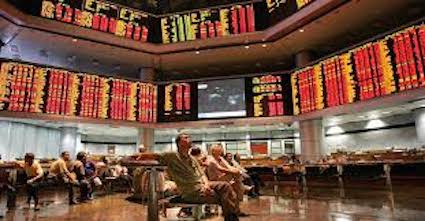Stock market loses RM270 billion in value in 2018

Pakatan Harapan’s loose talk triggers market decline
(NST) – Bursa Malaysia’s key index breached 1,700 points in early trade but ended its last trading day of 2018 nearly 10 points off the level due to lack of fresh catalyst.
At its close, FTSE Bursa Malaysia KLCI dropped 1.49 points to 1,690.58 from Friday’s close of 1,692.07.
This partly contributed to around RM270 billion loss in value of Malaysia’s broader stock market since January peak this year.
The benchmark index lost about 5.91 per cent in one-year total return, the lowest level since the global financial crisis despite having only a minor gap with a single year negative return of 5.36 per cent in 2014.
The ringgit, on the other hand, continues strengthening to its highest level since October 1 to RM4.1340 against the US ollar, with the longest winning streak since July 10.
Nestle (M) Bhd has the best gain among the FBM KLCI 30 stock components this year, followed by Top Glove Corp Bhd and Dialog Group Bhd. The worst performers were Genting Malaysia Bhd and Genting Bhd.
Other than FBM KLCI, indices such as the small and mid-cap among others have also taken a hit this year, marching into the red in one-year returns and partly contributing to the massive market capitalisation loss.
Analysts expect the market volatility to continue at least until the second half of 2019, to be mainly dominated by external factors.
“Market has still a lot of outstanding issues to tackle heading into 2019. Investor sentiments are not particularly positive around the world right now. The local market might still be volatile at least in the next six months,” stock market analyst Nazarry Rosli told NST Business.
“Internally we are still watching how the new government will perform especially on handling issues such as trade war, lower oil price, geopolitical tension, interest rate hikes. These are still affecting the sentiment worldwide.”
Maybank Investment Bank said these headwinds had raised uncertainties and turned up volatility in equity, which it expects to persist in 2019.
Key external lookouts besides US-China trade spats are policies especially monetary in the major economies, crude oil price direction, and political and socio-economic uncertainties in Europe, it said in a note.
However, the research firm believes that with volatility, there would be opportunities.
“For 2019, we believe there are pockets of opportunities for investors to trade on newsflow and thematics,” it said.
“Risks to growth for Malaysia are mainly external, largely from the danger of further escalation in trade war,” it added.
Maybank IB had end-2019 FBM KLCI target of 1,760 points considering the risk factors, balancing off with optimism for policies reset for longer term sustainable growth.

